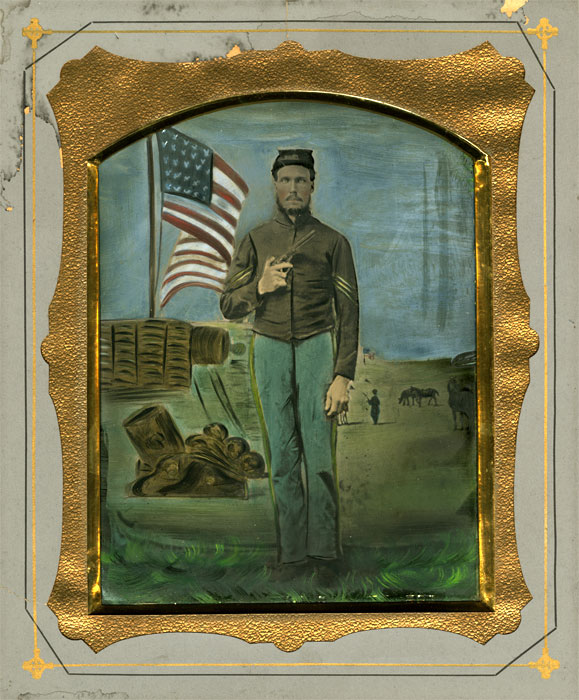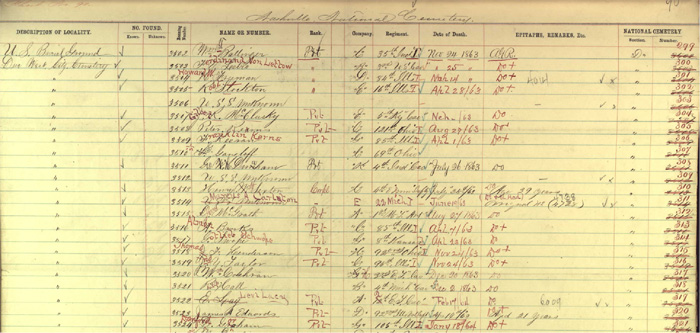
| Year: | Regiment: |
|
Name:
|
|
Federal Civil War Burial Sheets Project

One burial book, kept by W. R. Cornelius, is in the TSLA collection. Cornelius kept careful records of the Civil War soldiers buried in Nashville during 1864 and 1865. These soldiers, buried by Cornelius, were not recorded in the City Cemetery Interment Books. When the Final Disposition Volume III was made available on-line, it was learned that 3,021 Federal soldiers had been buried in City Cemetery and also that there had been 8,593 Federal soldiers brought from other, original burial sites and re-interred on “U.S. Burial Grounds, near Nashville.” No local Civil War historian knew the location of these large “Burial Grounds, near Nashville.”
The Roll of Honor, published by the U. S. Quartermaster in 1869, did not list the exact site of original burials in Nashville, instead only “Buried near Nashville.” It listed a total of 16,485 re-burials of Federal soldiers, from original burial sites in Tennessee and Kentucky, to the Nashville National Cemetery. These re-burials took place between October 1867 and January 1868.

This is one of many pages of the record of reinterment of United States soldiers in Tennessee.
The burial sheets for the Federal soldiers dis-interred at gravesites in Tennessee and Kentucky and then reburied at Nashville National Cemetery were eventually located in the Military Records branch at the National Archives. Of special interest was the identification of 3,021 soldiers dis-interred from the Nashville City Cemetery as well as of 8,593 soldiers dis-interred from U.S. Burial Grounds Due West City Cemetery, Nashville, and U.S. Burials Grounds Southwest City Cemetery, Nashville. The Tennessee State Library & Archives had these burial records microfilmed by the National Archives. The next step was a transcription and database project for the “burial sheets.” TSLA Friends offered to seek funds. The first donation came from Nashville City Cemetery Association and subsequently from individual donors to underwrite the project.
Transcription work was conducted under the auspices of TSLAFriends, employing transcriptionists who used digital images created from the microfilm. This position was funded by donations from individuals and the Nashville City Cemetery Association as well as through grant funding from the Tennessee Wars Commission.
Entries were transcribed as accurately and thoroughly as possible, including handwritten changes to names and other information. Crossed-out text is noted as such. All columns in the original ledger book were included in the transcription. Names were cross-checked with those listed in the Roll of Honor to help verify identity and names were also checked by a supervisor to ensure accuracy. Capitalization, punctuation and spelling were kept as found in the original ledger.
We gratefully acknowledge the leadership of Fletch Coke, who first suggested this project and assisted in many ways to bring it to completion.